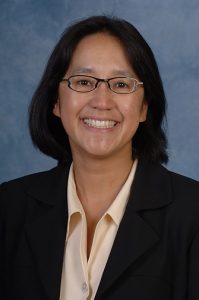FDA Approves Risdiplam, as Evrysdi, 1st Oral Treatment for All SMA Types


The U.S. Food and Drug Administration (FDA) has approved Evrysdi — formerly known as risdiplam — as the first oral and at-home treatment for adults, children, and infants 2 months of age and older with all types of spinal muscular atrophy (SMA).
With this action, Evrysdi — marketed by Genentech, a subsidiary of Roche — is now the third disease-modifying treatment to become available for this rare neuromuscular disease since 2016. Its first, Spinraza (nusinersen, a similar therapy by Biogen), was approved in December of that year, followed by Zolgensma (a gene therapy by Novartis and its subsidiary AveXis) in May 2019.
“Given the majority of people with SMA in the U.S. remain untreated, we believe Evrysdi, with its favorable clinical profile and oral administration, may offer meaningful benefits for many living with this rare neurological disease,” Levi Garraway, MD, PhD, chief medical officer and head of Global Product Development at Genentech, said in a press release. “The strength and resolve of the SMA community has continually inspired us as we developed this first-of-its-kind medicine for SMA, so today we celebrate our collective accomplishment together with them.”
Genentech expects Evrysdi to be available across the U.S. within two weeks through Accredo Health Group, an Express Scripts specialty pharmacy.
Its list price, which is generally not the treatment’s cost to patients, is set at a maximum of $340,000 a year, according to Genentech. That price comes into effect for patients weighing 44 lbs or more (20 kg); before that, price is based on a child’s weight. (Spinraza carries a list price of $750,000 for a first year of treatment, and $375,000 for each subsequent year; Zolgensma, a one-time treatment, is listed at $2.125 million.)
Patients and caregivers can call 1-833-EVRYSDI (833-387-9734) or visit the MySMA Support program for answers to questions regarding Evrysdi’s use, as well as those related to insurance and financial assistance.
The FDA announced its decision in advance of its Aug. 24 due date, and about four months after the agency extended its review to include additional risdiplam trial data to help in considering the broadest possible label.
“This approval comes at a time when access to treatment is more critical than ever as we navigate the COVID-19 pandemic,” Garraway said in an emailed statement. “Evrysdi, with its at-home delivery made possible by oral dosing, represents an important and timely advancement for people with SMA.”
Evrysdi — developed by Roche and Genentech in collaboration with PTC Therapeutics and the SMA Foundation — is a small molecule that works to increase the levels of SMN, a protein essential for muscle health and lacking in people with this disease.
Similar to Spinraza, it does so by boosting of ability of the SMN2 gene to produce more functional SMN protein. But unlike Spinraza, which is administered four times a year by infusions directly into the spinal cord, Evrysdi can be swallowed as a flavored liquid or given through a feeding tube once a day.
As such, it affects cells systemwide — both those of motor neurons in the central nervous system (CNS, the brain and spinal cord), and those of other tissues and organs, including muscles.
Paulo Fontoura, MD, PhD, Roche’s global head of neuroscience and rare disease clinical development, said that “the systemic distribution of risdiplam is an important feature of this [therapy] … because we know that the [genetic defect of SMA] affects multiple tissues beyond the CNS.” Fontoura spoke in an April interview with SMA News Today.
Karen Chen, the CEO of the SMA Foundation, added in a later interview that “it’s becoming increasingly clear that SMA is a whole body disease.”
Clinician-researchers with expertise in SMA supported Evrysdi’s approval, speaking favorably of the safety and effectiveness it showed in large and varied clinical trials. But they think it too early to say how important bodywide protein restoration will be.
“Added benefit” through a systemic treatment is possible, Richard Finkel, a pediatric neurologist now at St. Jude Children’s Research Hospital in Tennessee, said in an interview.
“I think we need to learn more about this,” he added. Finkel worked trials of all three SMA therapies while at Nemours Children’s Hospital in Orlando, Florida, and elsewhere.
Trials support FDA decision
The FDA’s decision was based on positive top-line data from the ongoing Phase 2/3 FIREFISH (NCT02913482) and SUNFISH (NCT02908685) trials. These studies are evaluating risdiplam’s safety and effectiveness, given once daily, in a total of 221 patients with SMA types 1, 2, and 3. Their ages span from 1 month to 25 years old.
FIREFISH’s top-line data included 41 type 1 infants, ages 1 to 7 months (median of 5.3 months), while SUNFISH’s included 180 type 2 and 3 SMA patients, ages 2 to 25 (median age of 9) and reliant on wheelchairs; 120 were randomized to treatment. SUNFISH was the first placebo-controlled trial to enroll such a diverse, by age and disability level, SMA patient group.
“Many of the patients in this study have not been … able to participate in other clinical studies of medicines, based on the type of disease they have, the age they are, the underlying scoliosis,” Susan Begelman, MD, vice president of the rare disease and neuroscience medical unit in U.S. medical affairs at Genentech, said in a February interview.
In SUNFISH’s pivotal patient group, 37.8% were at least 12 years old, 31.7% had severe scoliosis, and 41% had severe disability, she said.
Both trials met their primary and most secondary goals, highlighting that one year of Evrysdi’s use led to significant improvements in motor milestones in babies with type 1 SMA, and in motor function in children and young adults with types 2 and 3 disease.
FIREFISH data showed that 29% of infants were able to sit without support for five seconds, an unthinkable milestone in non-treated (natural disease history) type 1 children. Clinically meaningful improvements — a four-point or greater increase on the CHOP-INTEND scale — was also recorded in 90% of them. And 56% achieved a CHOP-INTEND score above 40, which is close to normal and, again, rarely seen in these children.
CHOP-INTEND assesses motor skills in SMA type 1 infants and uses 0 to 64 point scale. Without treatment, scores for SMA type 1 babies drop over time.
“The response to risdiplam seems to go beyond the motor function,” to include benefits in “the muscles that affect speech and swallowing, and the breathing muscles,” Finkel said.
And “49% of patients did not spend a single night in a hospital,” Laurent Servais, MD, PhD, a researcher also involved in trials of all approved therapies and a professor of pediatric neuromuscular diseases at the MDUK Oxford Neuromuscular Centre, said in a separate interview.
Given how many serious complications accompany type 1 disease, this is a huge — and “extremely meaningful” — change for a family with a type 1 child, Servais added.
SUNFISH findings showed motor function gains to be more pronounced in younger patients (2–5 years old) than in older ones (18–25 years old), supporting the well-known benefits of earliest possible treatment.
Among younger patients, clinically meaningful improvements — a three-point or greater gain on the Motor Function Measure-32 (MFM32) scale — were seen in 78.1% of those treated with Evrysdi and 52.9% of those given a placebo.
Most older patients on Evrysdi (57.1%) showed stabilization in their motor abilities, compared with 37.5% of those in the placebo group. Since treatment goal in older SMA patients is to prevent further loss of motor skills and greater disability, these findings are considered relevant.
“Patients who are treated later on in the SUNFISH trial are indeed doing better not only in terms of [outcome measures and statistical analyses], but also in their real lives,” Servais said.
Finkel noted that data from both trials “have been very supportive of a broad response to risdiplam across the full population of SMA.”
‘Very reassuring’ safety profile
Results to date also indicate that Evrysdi has an “excellent” safety profile, Servais said, with no reports of treatment-related side effects leading to discontinuation in any of these clinical trials.
“We’re really not seeing any significant side effects … [which] I find very reassuring,” Finkel added.
“We are fortunate that there are three different treatments, each with its pros and cons,” Chen said. “And we see that people will probably be looking at combinations of these SMN-upregulating therapies, or even in combination with other types of drugs, like muscle-directed drugs that have nothing to do with SMN.”
Evrysdi is now under regulatory review in Brazil, Chile, China, Indonesia, Russia, South Korea, and Taiwan. An approval request filing with the European Medicines Agency, the regulatory agency for the European Union, is “imminent,” Roche said in an email response.
Two Phase 2 trials — JEWELFISH (NCT03032172) and RAINBOWFISH (NCT03779334) — are also evaluating Evrysdi’s effectiveness in SMA types 1, 2, and 3.
RAINBOWFISH is still enrolling newborns up to 6 weeks old with a genetic diagnosis of SMA but no evidence of symptoms (presymptomatic) in several countries, including the U.S.; more information can be found here.
The fully enrolled JEWELFISH study is investigating risdiplam in patients ages 6 months to 60 years old, and includes those previously treated with Spinraza or Zolgensma.
The post FDA Approves Risdiplam, as Evrysdi, 1st Oral Treatment for All SMA Types appeared first on SMA News Today.






